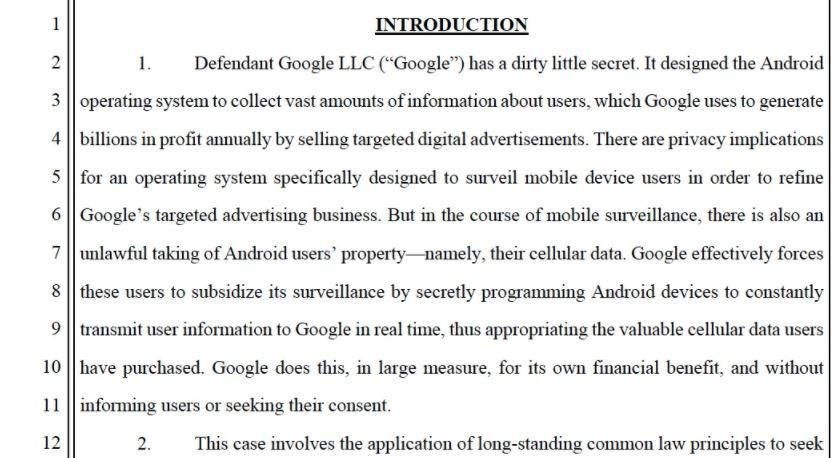A group of people has filed a lawsuit against Google due to the alleged theft of mobile data -allowances from Android users using non approved and undisclosed transmissions to the company’s servers. All four plaintiffs seek to have this process received class action status.
This group argues that Google uses limited mobile data mappings on Android without its permission to send to its own servers all kinds of information that has nothing to do with using Google services: “We are talking about a passive data transfer practice over a cellular network,” demand says.

A piece of demand mentions that “Google designed and implemented its Android operating system and applications to extract and transmit large volumes of information between users’ mobile devices and their own servers using victims’ mobile data mappings,” which should be considered a highly intrusive practice.
In addition, the plaintiffs note that none of the four Android usage agreements (Terms of Service; Privacy Policy; Google Play Agreement; Google Play Terms of Service) includes information about this practice, so data collection goes completely unnoticed by users.
The plaintiffs’ attorney acquired a Samsung Galazy S7 to prove its arguments, finding that by leaving the device idle and offline; it could send up to 9 MB of data to Google using mobile data from the devices. The device, even with all apps closed, transferred data to Google almost 400 times a day.
There is plenty of possibility of monetization of this data, at an average price of $8 USD per GB of data in the U.S., 130 MB equals approximately $1 lost in Google data collection per month, if the device is disconnected from WiFi all the time and performs all its passive transmission over a cellular connection.
It is claimed that many of the data transmitted is log files that are about network availability, open applications, and operating system metrics. Google might have delayed the transmission of these files until a WiFi connection was available, but chose to spend users’ mobile data so that they could collect data at all times. The company’s official stance on demand is still expected.

He is a well-known expert in mobile security and malware analysis. He studied Computer Science at NYU and started working as a cyber security analyst in 2003. He is actively working as an anti-malware expert. He also worked for security companies like Kaspersky Lab. His everyday job includes researching about new malware and cyber security incidents. Also he has deep level of knowledge in mobile security and mobile vulnerabilities.










